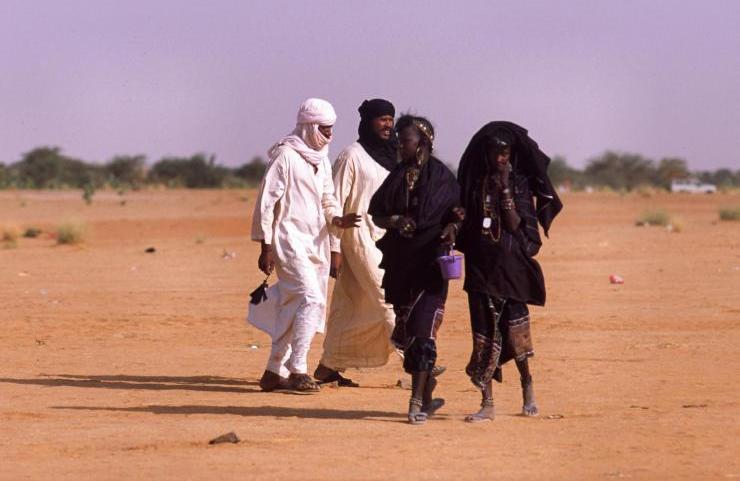The real importance of Ethnicity.

“Tribal wars”, “ethnic conflicts”, “racial conflicts”. To explain the reasons for the violence between different communities, identity and cultural oppositions are brought up. But there are always economic reasons and ambitions for power at the basis of any disagreement. The divisions of human groups have no scientific basis.
According to the French anthropologist Jean-Loup Amselle, it was often colonial administrators and anthropologists who created ethnic groups in Africa, both driven (with different purposes) by the desire to classify local groups. Then, by applying different policies to different groups, they are born, become concrete, rigid and become real wherever they were characterized by fluctuating identities.
In Mali, some Peul settled down over time and gradually assumed Bambara identities and surnames. Then, due to historical or ecological events, they resumed nomadism and with it the old Peul identity.
However, if monographs are written where the Peul is defined as a nomad, pale-skinned and with Hamitic features and if different policies are applied to the alleged different groups, the difference is consolidated and everyone ends up being condemned to be what the others
think they are.
The increasing emphasis placed on cultures and identities, and their alleged roots, which characterises the current debate leads to growing attention to the local and localisms.
It then happens that some localisms, challenged by some elite with sufficient power, are inflated with global aspirations: regions want to become states, dialects languages and so on. All this is in the name of the so-called peoples or local cultures that claim autonomy from the nation-states. This is how many of the “ethnic conflicts” that seem to characterize our age arise and that often conceal, under the veneer of culture, very different impulses, very different interests.
South African apartheid has always appeared in our eyes as one of the most aberrant examples of ethnicisation in relations between groups. However, the French anthropologist Claude Meillassoux offers us an interesting and pointed reading of this device thanks to which South African capitalism has managed to make the most of local labour at minimum wages. Rather than South African blacks being ethnicised, they have been proletarianised.
The Tutsi / Hutu dichotomy was created by a differentiated colonial policy, which favoured one at the expense of the other. The conflict then becomes social, political and not ethnic.
In Africa there is often talk of the ethnicisation of politics, meaning that parties often express the interests of an ethnic group. In reality, those parties express the interests of some lobbies as such, not as ethnic groups. We are therefore faced not with an ethnicisation of politics, but with a politicisation of ethnicity.
The competition for resources in many cases gives rise to organisational models that express, behind an ethnic guise, the demands of an interest group. In many countries, the economic decline and the consequent loss of jobs have caused the weakening of the political subjects who traditionally represented the workers and, in many cases, the discontent of the latter has been catalysed by political movements that have led to a class solidarity that could be defined as ethnic.
Humans rarely enter into conflict because they have different customs or cultures; usually, it is to conquer power, and when they do so, following ethnic alignments, it is because ethnicity becomes the most effective means to do so.
Marco Aime/Africa
Anthropologist



